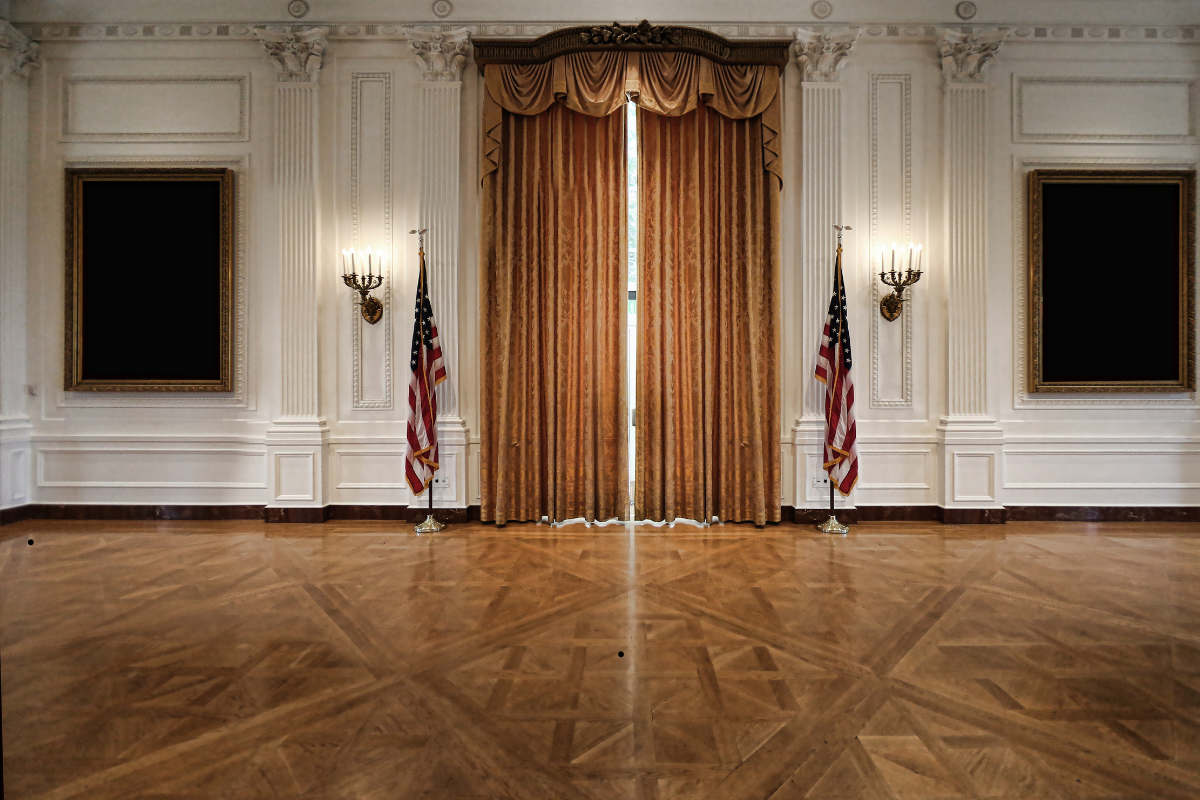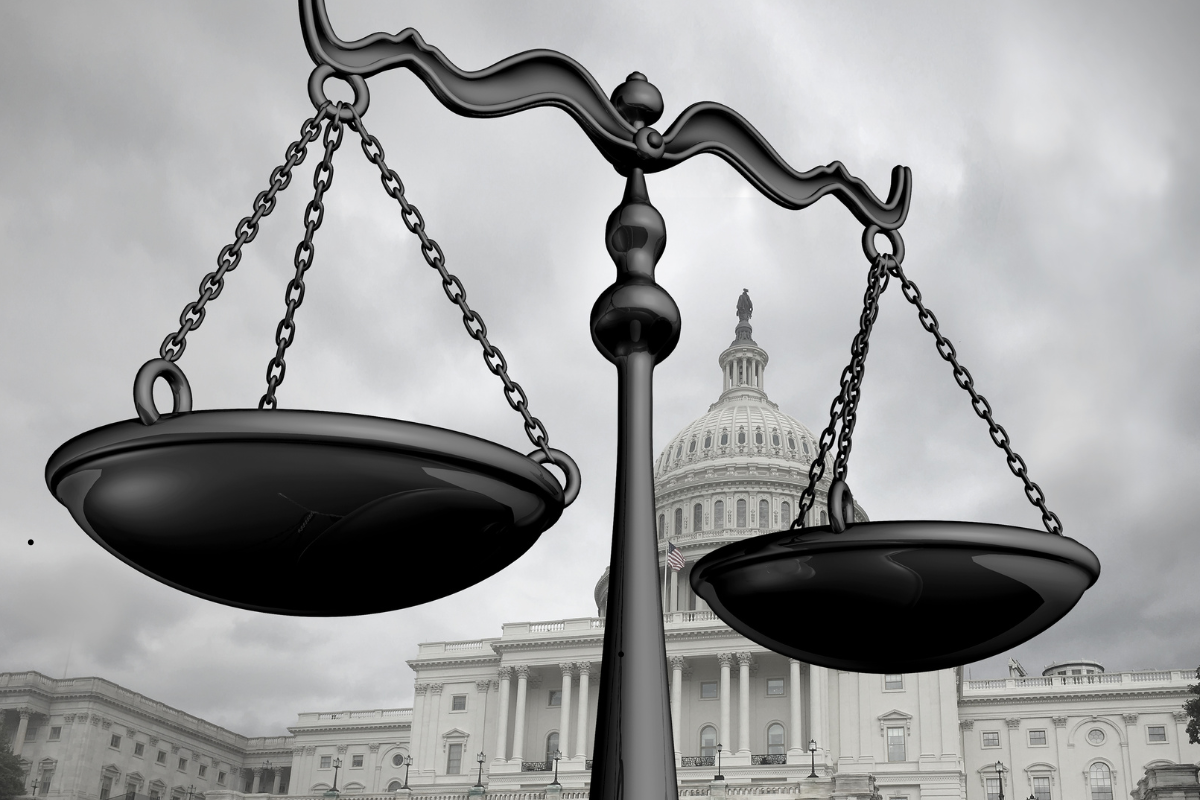Federalist 54 Part II
Publius spends the bulk of Federalist 54 discussing the problem of slavery and its relationship to representation. The primary problem addressed is that of proportion, and the secondary problem how slavery factored into that. Most of us would regard slavery as the more pressing moral issue, but that doesn’t make it necessarily the most important political issue. The debates at both the national convention and the state ratifying conventions centered on producing a system of government as widely acceptable as possible. Moral issues might involve drawing clear, bright lines, but politics, if done with any attention to the demands of liberty, must involve compromise and — maybe as importantly — knowing when to back off when compromise proves impossible to attain.
Moral absolutes and politics make uneasy bedfellows. Our system of ordered liberty reasonably attempts to assign such absolutes to the private sphere. I don’t mean by that simple individual belief but also those realms such as churches and civic organizations where people freely associate with one another. These types of associations are typically exclusive enterprises, after determining membership by agreement with stated moral purposes. They don’t compel participation.
Since politics always involves compulsion high moral purposes tend to threaten the aims of a free society. Best to leave such pursuits to private associations. Even a free society can’t completely dispense with moral questions, however, and often those questions relate to judgements concerning inclusion: who is a citizen and who will enjoy the full benefits thereof? That question, in turn, demands an answer to the question as to personhood itself, and try as we might we cannot avoid dealing with that question in its moral dimensions as well as its metaphysical ones.
The most contentious debates in American history have revolved the question of personhood and whether human beings might ever be considered the property of another. Just as the slavery debates required answering these questions so too does the abortion debate now. Is it possible to find some sort of middle ground on these questions? Lincoln thought the nation could not endure half-slave and half-free, but Publius thought otherwise, even if he consistently declaimed slavery as a moral abomination.
The constitutional system of government was not designed to solve the problem of slavery, but it was offered as a framework by which the problem might eventually be solved. The issue was brought into fullest relief by the three-fifths clause of Article I section 2. Southerners had argued that the law recognized slaves as property but also as persons, and since the clause in question referred to both representation and taxation slave owners would bear the costs of taxation without receiving the benefits of representation.
No one to my knowledge argued that slaves were not human beings, nor that legal protections applied to them not at all. There were laws prohibiting maltreatment of slaves. Acknowledging slaves as human beings, however, didn’t necessarily result in seeing them as persons in the full legal sense, nor, if acknowledged as a person, one entitled to the privileges and immunities we associate with citizenship. This confusion resulted in the dual nature of existing laws that both recognized and did not recognize the slave as either fully person or fully property. In that sense, the constitution ratified already existent practice.
Publius drew attention to this complexity, noting that this “barbarous policy” nonetheless required considering “the case of the slaves .. as it is in truth, a peculiar one.” Politically, however, he admonished to “Let the compromising expedient of the Constitution be mutually adopted, which regards them as inhabitants, but as debased by servitude below the equal level of free inhabitants, which regards the SLAVE as divested of two fifths of the MAN.” The demands of representation caused the divestment, not any metaphysical claims concerning personhood itself. Part of Lincoln’s political genius involved his conviction of the falseness of this binary and understanding that settling the question could not be put off indefinitely, not with partisans on both sides of the issue settling into more absolute and thus more heated positions.
I caution readers against thinking that all Anti-federalists, since they opposed ratification, were pro-slavery. On the contrary, a number of them opposed the constitution precisely for compromises such as this. The redoubtable Brutus understood something was afoot via a simple reading of the clause under question: whenever a government document resorts to unintelligible language, it’s up to no good.
“What a strange and unnecessary accumulation of words are here used to conceal from the public eye, what might have been expressed in the following concise manner: Representatives are to be proportioned among the states respectively, according to the number of freemen and slaves inhabiting them, counting five slaves for three free men.”
Put in this clearer light the slavery problem attains even starker relief:
“‘In a free state,’” says the celebrated Montesquieu, ‘every man, who is supposed to be a free agent, ought to be concerned in his own government, therefore the legislature should reside in the whole body of the people, or their representatives.’ But it has never been alledged that those who are not free agents, can, upon any rational principle, have any thing to do in government, either by themselves or others. If they have no share in government, why is the number of members in the assembly, to be increased on their account? Is it because in some of the states, a considerable part of the property of the inhabitants consists in a number of their fellow men, who are held in bondage, in defiance of every idea of benevolence, justice, and religion, and contrary to all the principles of liberty, which have been publickly avowed in the late glorious revolution?”
Brutus keenly observed that this compromise, as well as others, did not satisfy the demands of equal popular representation but would necessarily skew the operations of the legislative body to the advantage of the southern states:
“What adds to the evil is, that these states are to be permitted to continue the inhuman traffic of importing slaves, until the year 1808–and for every cargo of these unhappy people, which unfeeling, unprincipled, barbarous, and avaricious wretches, may tear from their country, friends and tender connections, and bring into those states, they are to be rewarded by having an increase of members in the general assembly.”
The slavery compromise, Brutus shrewdly observed, distorted the principle of representation, and this too worked against the interests of the states. Publius didn’t see it that way, arguing that was “not probable that the richest State in the Confederacy [would] ever influence the choice of a single representative in any other State.” The principle of representation at work, Publius believed, advanced a federal principle that would insure no state had the upperhand.
Connecting taxation to representation necessitated something like the three-fifths compromise. Publius nonetheless claimed that the combination would “have a very salutary effect” in terms of forcing the states to give an accurate count in the census that would formed the basis for both representation and taxation. While the states would want to exaggerate their numbers for purposes of getting more representatives, they would want to lowball the numbers for purposes of taxation. The combination would force them to make an accurate count.
The clause presents an interesting insight into a fundamental problem of political order: agreement and disagreement cross-over each other in confusing ways, making any kind of political coalition inherently unstable. Brutus and Publius may have agreed about slavery, but could not agree on the clause concerning representation that involved slavery.
The concession to the slave-holding states may not have even been the clause’s most controversial measure, however. Publius would spend the next couple of essays addressing the most substantive Anti-federalist complaint: the paucity of representatives.
Director of the Ford Leadership Forum, Gerald R. Ford Presidential Foundation
Related Essays




